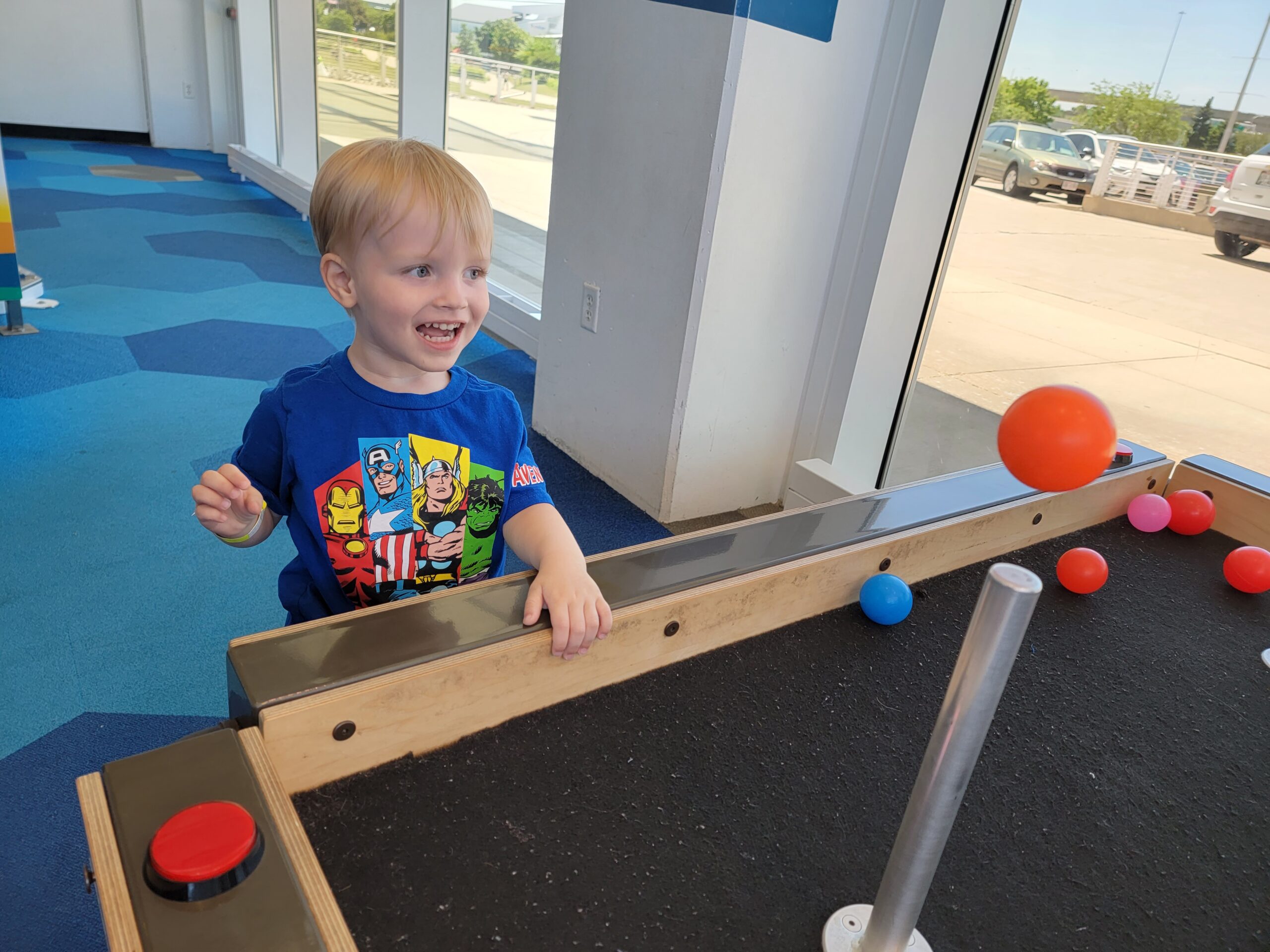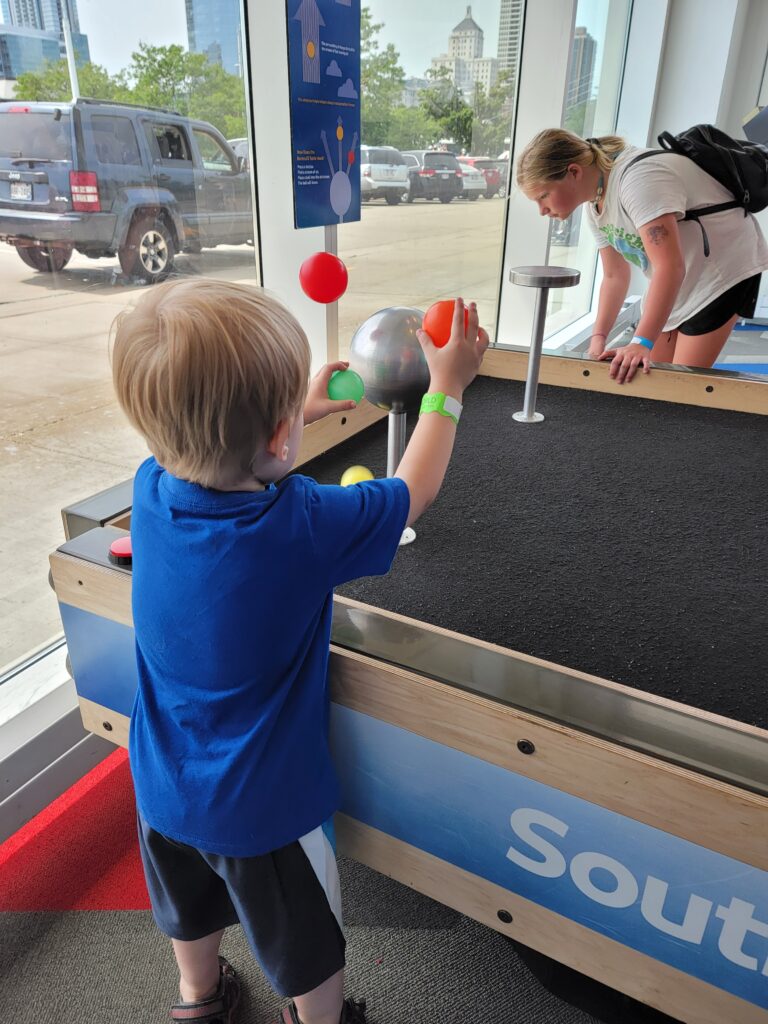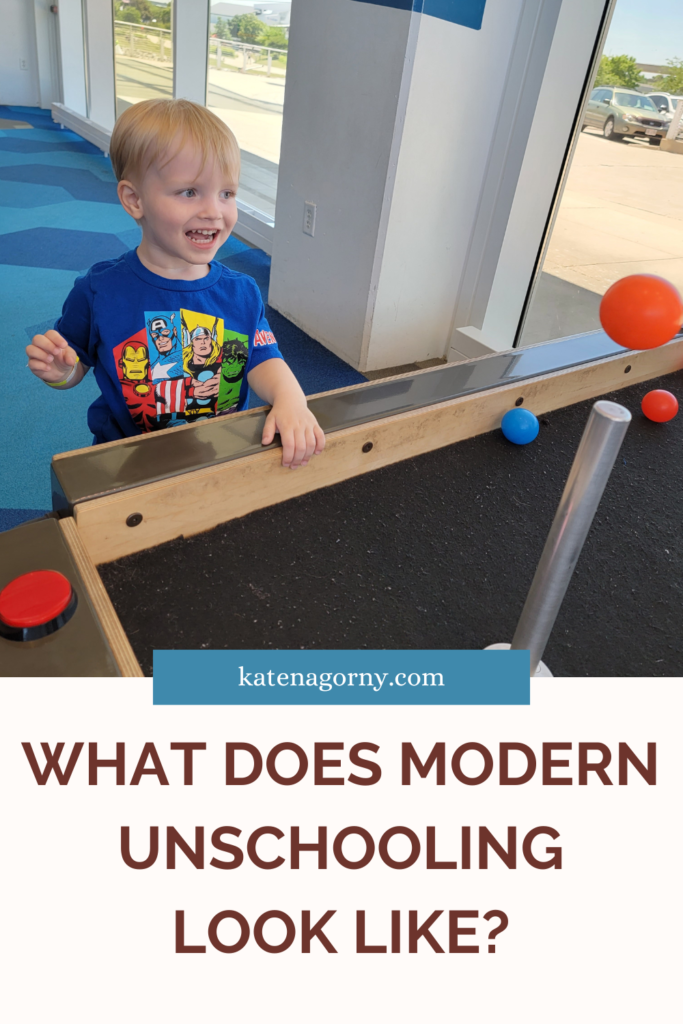
What Does Modern Unschooling Look Like?

Homeschooling tends to bring up mental images of moms sitting at the breakfast table with their kids going over old textbooks but a modern type of homeschooling, also known as unschooling, is very different.
Homeschooling has been gaining in popularity over the years for a number of reasons. Some parents feel that schools are teaching their kids things they shouldn’t while others want to give their children flexibility in learning that public schools are unable to offer. Whatever the reason, homeschooling can take many forms and can be adapted to each student and family as needed.
Short History of Homeschooling
Before school attendance was mandatory, the majority of kids were homeschooled. Sometimes it was because they couldn’t afford to attend school and other times, there was no school nearby. Parents and other family members would teach them at home and if they were wealthy enough, would hire tutors to teach their kids. Once public schools became more common and compulsory attendance laws went into place, the majority of kids attended public school in developed countries.
In the 1960s and 1970s, the modern homeschool movement began. People felt that teaching children by rote and testing was limiting their potential and turning them into compliant employees instead of leaders. This has become known as unschooling and is gaining followers worldwide.

Homeschooling or Unschooling?
Unschooling is a subset of homeschooling that focuses on developing the child as a whole but in a more natural and creative way. It is child-led and interest-based learning which is very similar to the Montessori approach. Instead of memorization and testing, it centers around how the child best learns. This could be reading books, going places to experience the topics, volunteering, or any number of other ways.
Unschooling also lets kids move and learn at their own pace. It’s not uncommon for kids to be way ahead in topics that they love and find easy, which is something that modern public schools aren’t able to accommodate. It’s not unusual to see a child doing unschooling who is years ahead of where they would be in public school in topics that interest them.
For subjects they may be struggling with, it allows them more time to grasp the concepts and find whatever way they learn best. For instance, many math concepts have multiple ways of solving them but only one or two may be taught in a traditional school. This style allows the parent to figure out which way makes the most sense to their child instead of frustrating them with a way that they have trouble understanding. By doing so, it prevents burnout and negative thoughts that they aren’t smart enough to do something.
For many parents who begin with Montessori-based child rearing, unschooling is a natural progression to continue fostering their child’s curiosity and love of learning because when a child is having fun, they learn and retain more. Parents that use a Montessori-based approach from the beginning already know that children will amaze us if we allow them to. This just takes that one step further into the realm of more formal learning.

What Topics Are Covered?
Whatever you choose though depending on regulations, some may be required. Most parents who unschool cover all the basics and more. They just do it through different methods than you’d find in normal public schools. For example, when starting fractions, they may learn through baking. American history may include a week in Colonial Williamsburg Virginia, immersing them in the history they are learning about.
Before getting started, you’ll want to check your state’s regulations to see what is required for homeschoolers and make sure that you incorporate those into your curriculum.

Should I Use a Curriculum?
If you’re like me, you probably would like a curriculum to give you an idea of what topics your child should know and when to teach them. With unschooling, while it’s a very fluid and unstructured teaching style, it’s still important not to miss anything that they may need to know for college. It can also help to have a curriculum if you don’t have a teaching background so you know what order some things should be taught in if they build on each other.
Unless you have a background in teaching, I’d recommend at least getting a basic curriculum of some form even if you’re not following it to the letter. This is what we’re doing with Dom even though he’s just two right now. We want to make sure that he’s getting exposure to all the topics that his peers would be. As he progresses, we intend to continue doing the same thing, ensuring we have curriculums for a few years ahead in case he is moving through a particular subject at a faster rate.
There are several places you can find up-to-date curriculums online and I’ll be uploading the one we’re using to get Dom ready for his kindergarten years. There are also a lot of online options available to help. We’ve used Acellus for courses and filling in the gaps (we know from personal experience parents aren’t always good at everything!).

Regulations
Each state has its own regulations regarding homeschooling so it’s important to know the regulations in your state before you start. For example, in Wisconsin, we must give the state notice we’re homeschooling by October 15th every year. We also must teach specific subjects and meet minimum hours every year.
Regulations aren’t there just to cause you headaches as an unschooling parent but also can be very helpful. There is also the option of homeschooled students attending up to two courses a semester at their local public school in Wisconsin. This is important to parents who want to make sure that their child gets time to socialize with other local kids or who don’t know how to teach a certain subject.
As a parent, you are the one who needs to understand the system inside and out. If that seems overwhelming, there are resources in every state to help you navigate the paperwork and requirements. This site is particularly helpful with the basics. You can also find unschooling or homeschooling groups for your state on Facebook. These are invaluable resources and a good way to connect to like-minded parents in the area.
Why Should We Unschool?
Unschooling is a great way to spend more time with your child and ensure they are learning life skills as well as the “3 Rs.” It gives your family more flexibility and freedom to do what’s best for your child instead of them being forced into a system not meant for outliers.
I do want to mention that it is a huge responsibility and if you aren’t up to guiding them, unschooling can do more harm than good. If they don’t learn all the things they need to to get into college and yet they want to be a doctor, that can not only cause delays but possibly derail their plans entirely.
To me, it is worth the investment in my child to give them that advantage in life despite the fact it will be harder on our family due to the time it requires from us as parents.
Have you ever homeschooled or unschooled your child? Do you have tips and tricks for making it easier or more fun? Please leave your story and suggestions in the comments below!

- Tags: child, children, homeschooling, kids, learning, montessori, parentsasteachers, schooling, unschooling





